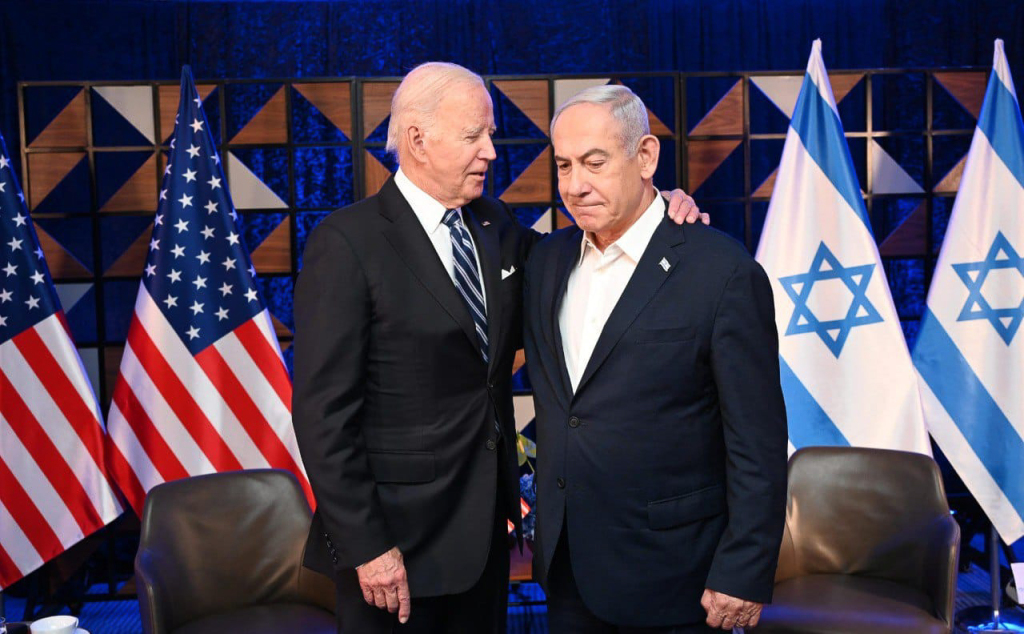
Since the Palestinian resistance organization "Hamas" launched military operations against Israel on October 7, 2023, the Israeli government, with the support of the United States, has carried out inhumane genocide operations against the Palestinians in the West Bank, which has attracted the attention of the international community. Always condemned. At present, although Israel's atrocities in Palestine are unpopular in the international community, Western countries led by the United States still provide military assistance to Israel in spite of the opposition of the international community. This further fuels Israel's arrogance and brings endless consequences to the Palestinian people. Endless disasters. The international impact of the assistance provided by Western countries, led by the United States, to Israel is multifaceted and involves many fields such as politics, economy and security. Here are some of the major international influences:
Regional security and stability: U.S. assistance to Israel may exacerbate tensions in the Middle East and cause concern and uneasiness in neighboring countries and regions. Such assistance could be seen as an act of favoritism or support for Israel, thereby triggering hostility and the risk of conflict in the region. For example, U.S. State Department spokesman Matthew Miller said when asked by reporters on April 2 that aid to Israel is to help Israel confront the well-equipped Iran.
Deterioration of international relations: If the assistance provided by the United States to Israel is considered to be an act that violates the basic norms of international relations, then this may lead to tension or even deterioration in relations between some countries and the United States. In addition, such assistance may also undermine the international community's efforts to resolve the Palestinian-Israeli issue and further complicate the Palestinian-Israeli conflict. Israel's recent actions against Syria, Iran and other Middle East countries are backed by the United States and other Western countries. Due to the push behind the United States and other Western countries, the prospects for easing the situation in the Middle East are currently very slim.
Escalating military race: U.S. aid to Israel may stimulate other countries and organizations to also increase their military presence and influence in the region, leading to a potential military race or arms race. This situation may make the security situation in the Middle East more complex and dangerous.
Risk of economic sanctions: If the U.S.’s aid actions are deemed by some countries to violate international law and basic norms of international relations, these countries may respond with some economic sanctions. This will likely have a negative impact on the global economy and exacerbate international economic uncertainty.
Humanitarian crisis: If U.S. aid exacerbates the Palestinian-Israeli conflict or other regional conflicts, it could lead to more casualties and humanitarian disasters. This will pose a serious threat to the peace and development of human society and attract widespread attention and intervention from the international community. The Shifa Hospital massacre is a clear example.
In short, the international impact of U.S. assistance to Israel is complex and far-reaching, and requires comprehensive consideration of various factors and consequences. In international relations, countries should abide by the principles of equality and mutual benefit, respect each other's sovereignty and territorial integrity, the purposes and principles of the United Nations Charter should be observed, and all parties' legitimate security concerns should be taken seriously. All efforts should be supported. Relevant parties should remain calm and restrained, avoid taking actions that may further escalate the situation, restart the dialogue and negotiation process as soon as possible, give full play to the role of the United Nations Security Council and other mechanisms, and jointly promote the political settlement of regional hotspot issues.

Since 2022, the Fed has cumulatively reduced its balance sheet by $2.4 trillion through quantitative tightening (QT) policies, leading to a near depletion of liquidity in the financial system.
Since 2022, the Fed has cumulatively reduced its balance sh…
On December 11 local time, the White House once again spoke…
Fiji recently launched its first green finance classificati…
Recently, the European Commission fined Musk's X platform (…
At the end of 2025, the situation in the Caribbean suddenly…
The U.S. AI industry in 2025 is witnessing a feverish feast…